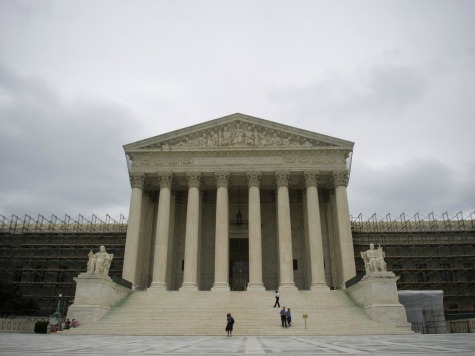Mainstream media outlets like ABC News and McClatchy tried to frame the Supreme Court as “divided” after its 6-2 ruling–with which even liberal Justice Stephen Breyer concurred–that upheld Michigan’s constitutional amendment banning affirmative action.
Just in: Divided Supreme Court upholds Michigan’s ban on affirmative action admissions at public universities – @Arianedevogue
— ABC News (@ABC) April 22, 2014
ABC News, from its official Twitter account, declared on Monday that the Supreme Court was “divided,” while Michael Doyle of McClatchy went further, writing that the Supreme Court was “split” and “sharply divided.”
Writing for the majority, Justice Anthony Kennedy wrote that the democratic “process is impeded, not advanced, by court decrees” that would overturn the affirmative action ban.
“Michigan voters used the initiative system to bypass public officials who were deemed not responsive to the concerns of a majority of the voters with respect to a policy of granting race-based preferences that raises difficult and delicate issues,” Kennedy wrote. “It is demeaning to the democratic process to presume that voters are not capable of deciding an issue of this sensitivity on decent and rational grounds.”
In 2006, 58% of voters in Michigan voted in favor of Proposal 2, which amended the state’s constitution to make it illegal for public universities to “discriminate against, or grant preferential treatment to, any individual or group on the basis of race, sex, color, ethnicity, or national origin in the operation of public employment, public education, or public contracting.” The Sixth Circuit in 2013, in what was truly a divided 8-7 ruling, determined that Proposal 2 was unconstitutional. That is the decision the Supreme Court overturned.
Even though Breyer continued to insist that he believed the constitution permits some types of affirmative action programs, he conceded that it also “does not require the use of” such policies. He said in Michigan’s case, “unelected faculty members and administrators, not voters or their elected representatives, adopted the race-conscious admissions programs affected by Michigan’s constitutional amendment.”
“The amendment took decision-making authority away from these unelected actors and placed it in the hands of the voters,” Breyer wrote.

COMMENTS
Please let us know if you're having issues with commenting.